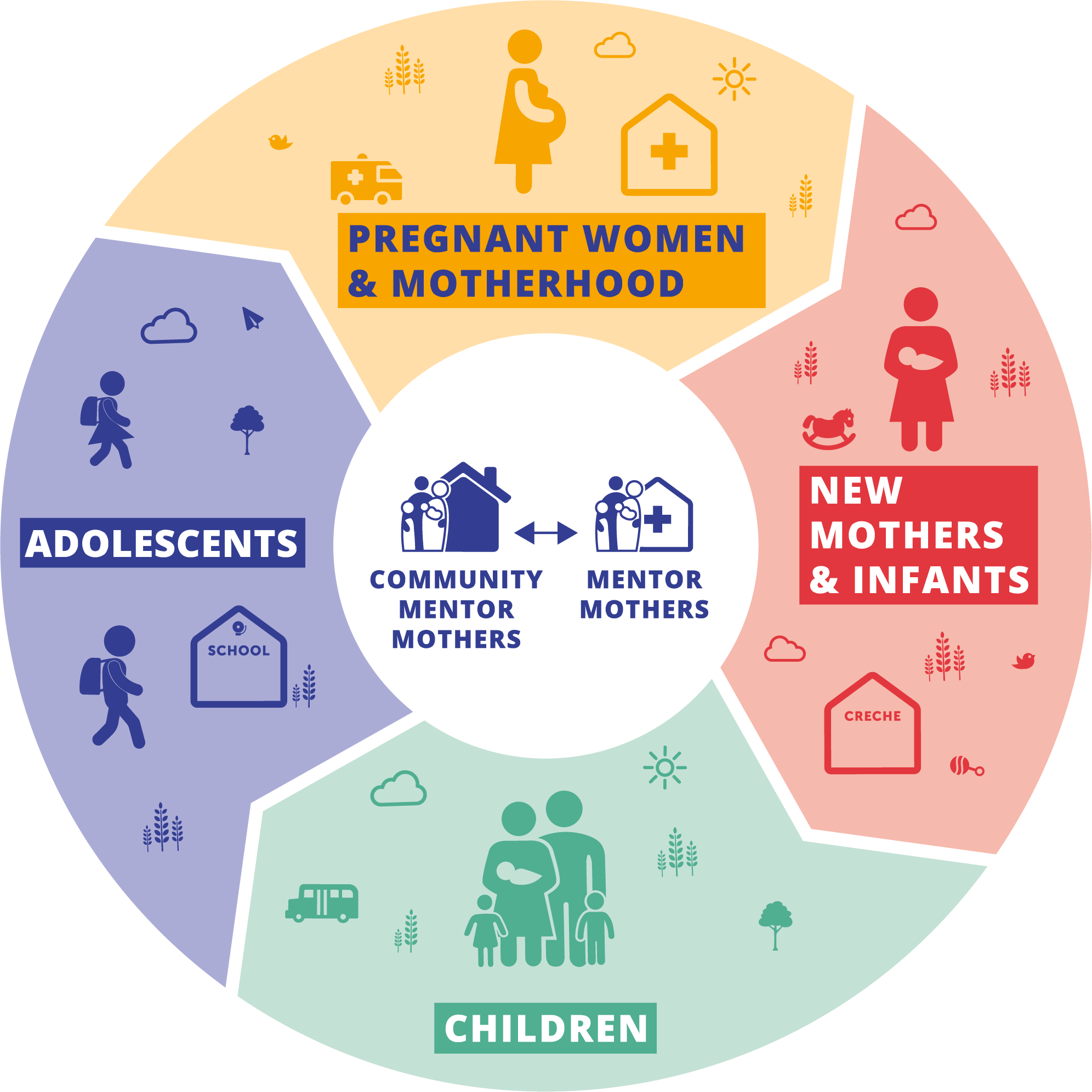What We Do

m2m is working towards the following United Nations (UN) Sustainable Development Goals (SDGs): helping end the HIV/AIDS epidemic, ensuring good health, well-being, and decent work opportunities for everyone, and achieving gender equality by 2030. m2m is committed to working in partnership with governments to address health inequities in the countries where we operate.
But much work lies ahead to achieve these goals…
4.2m
more health care workers are needed to meet sub-Saharan Africa’s needs.
Women
READ THE CHALLENGES
Children
READ THE CHALLENGES
Adolescents
READ THE CHALLENGES
Special Populations
READ THE CHALLENGES
How m2m Makes A Difference
mothers2mothers (m2m) ensures one of Africa’s greatest strengths—its women—are at the heart of our work to end AIDS by delivering primary health care services to the families that need it most and creating a thriving, healthy Africa where no one is left behind.
Why m2m is uniquely placed…
An Integrated Approach
We serve entire families, not just a woman or her child. We work closely with doctors and nurses in health facilities, and go door-to-door in communities, to deliver integrated primary health care services to meet our clients’ growing and urgent health needs. This includes tackling HIV, tuberculosis, and other related conditions such as hepatitis B, syphilis as well as malaria, and noncommunicable diseases (e.g., diabetes, hypertension, and cervical cancer).
Peers Helping Peers
Working on the frontline in their own communities, m2m Peer Mentors—known as Mentor Mothers—have a deep understanding of the social and cultural challenges that clients face on their journey to good health, and through trust and shared experience are able to support clients to overcome barriers to care. The trusted relationships that Mentor Mothers develop with their clients are unparalleled in maternal and child health care in Africa.
Ensuring Our Clients Stay In Care
We keep our clients in care for the long term—supporting them to start and access services, adhere to treatment, and stay in care. In fact, two peer-reviewed studies have proven that m2m’s clients are significantly more likely to be retained in care than those not supported by m2m (see here and here).
Evidence-based Decision Making
By combining cutting-edge digital health technology with rigorous data analysis to track our progress and measure our impact, we can quickly address service issues, identify best practices, and pivot and evolve our service delivery based on the evidence.
Powerful Track Record of Experience and Impact
Since m2m was founded in 2001, we have continued to innovate on our model, expanded our scope (including offering eServices), and integrated primary health care services. We have reached almost 15M women and children, created jobs for nearly 12,000 women living with HIV, and achieved the virtual elimination of mother-to-child transmission of HIV for our enrolled clients for eight consecutive years.
Strong Partnerships
To increase our scale and impact, we build deep relationships with governments and other NGOs to deliver our services. We are committed to amplifying our impact through health systems strengthening, by providing technical assistance to government and implementing partners, as well as by advocating for accreditation and fair pay for community health workers.























